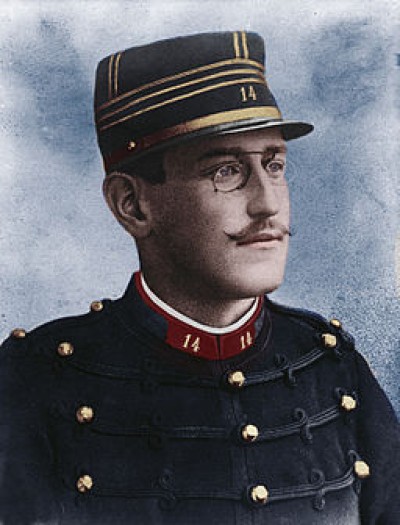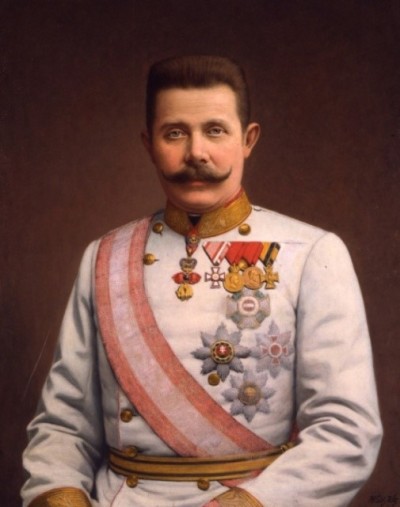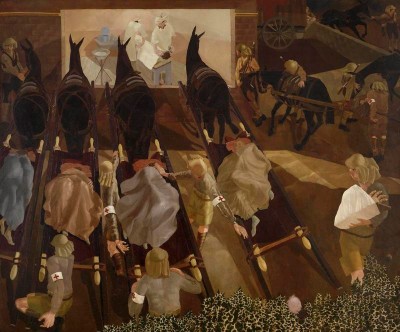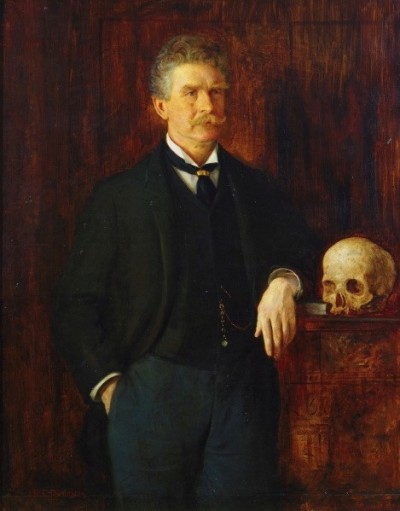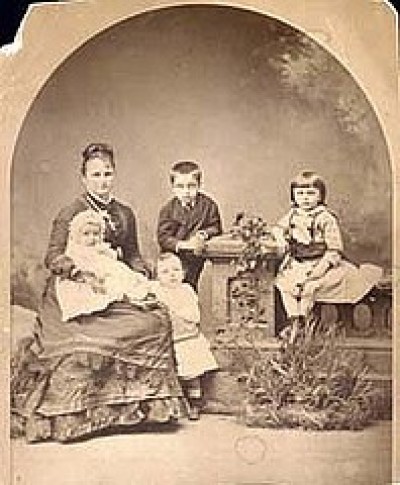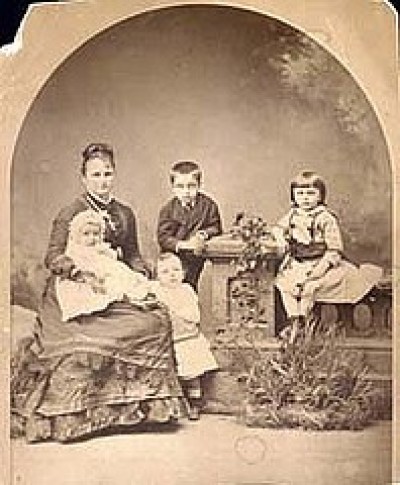Course description
European Anti- Semitism: The Dreyfus Affair
 Since Jews first started coming to the continent about fifteen hundred years ago, the relationship with Christian Europe has never been an easy one. The conflict between the European wish to see everyone assimilate and the Jewish need to maintain a separate identity could only lead to trouble and everywhere they went the Jews found themselves, sooner or later, unwelcome. Though the Jews had entered Europe from both East and West, the vast majority of Europe’s Jews lived in the East, in countries like Poland, Ukraine or Lithuania, either in separate inner city areas called ‘ghettos’ or in Jewish-only villages often called ‘stetls’.
Since Jews first started coming to the continent about fifteen hundred years ago, the relationship with Christian Europe has never been an easy one. The conflict between the European wish to see everyone assimilate and the Jewish need to maintain a separate identity could only lead to trouble and everywhere they went the Jews found themselves, sooner or later, unwelcome. Though the Jews had entered Europe from both East and West, the vast majority of Europe’s Jews lived in the East, in countries like Poland, Ukraine or Lithuania, either in separate inner city areas called ‘ghettos’ or in Jewish-only villages often called ‘stetls’.
The countries of Western Europe had only very small Jewish populations, all urban, and often originally from Spain, Portugal or North Africa but, around the middle of the 19th century, this began to change for a number of reasons.
Firstly, the relationship between the Jews and the local communities in the East had completely broken down to the point where there were often ‘pogroms’ in which thousands of Jews would be killed. The Jews responded in the way they always had: by moving on. Many, as many as could get there, went to the Americas, especially the U.S.A. but large numbers settled in Western European cities where the comparative absence of anti-Semitism meant that, within a generation, there was a large Jewish middle-class entering the professions and politics.
For the first time, anti-Semitism started to become a reality among the upper and middle classes of France or Holland or England but no legal barriers were made against Jews in any field and they entered all the professions, including the army.
 In the early 1890s, France was aware that its next war would probably be with Germany. Before any shooting started, the war would be one of intelligence and spying. This, in France, was the responsibility of the Deuxieme Bureau (‘Second Office’), the official name of the French military intelligence agency. They had a problem: for some time they had known that one of their officers was passing secrets to the Germans but they did not know which officer. The upper-class, Christian, French army officers had no real information to help them so they decided it would be the person whose face did not fit.
In the early 1890s, France was aware that its next war would probably be with Germany. Before any shooting started, the war would be one of intelligence and spying. This, in France, was the responsibility of the Deuxieme Bureau (‘Second Office’), the official name of the French military intelligence agency. They had a problem: for some time they had known that one of their officers was passing secrets to the Germans but they did not know which officer. The upper-class, Christian, French army officers had no real information to help them so they decided it would be the person whose face did not fit.
One officer stood out in this way. Alfred Dreyfus was not upper-class or Christian and he came from a region that was really half German. Dreyfus was an Alsatian Jew. Alsace is the province between Germany and France. It has changed from French to German and back again many times and the local dialect is based on German, not French.
 However, it was not that Dreyfus came from half-German Alsace that caused suspicion. It was because he was Jewish. Thirty years earlier, the French Army would never have taken him. Many of the intelligence officers investigating the stolen secrets felt that it was so obviously this German-speaking Jew that they really did not need to look further. Dreyfus was given a rapid and unfair court martial and sent to the notorious Devil’s Island, a cruel French prison just off the coast of Venezuela.
However, it was not that Dreyfus came from half-German Alsace that caused suspicion. It was because he was Jewish. Thirty years earlier, the French Army would never have taken him. Many of the intelligence officers investigating the stolen secrets felt that it was so obviously this German-speaking Jew that they really did not need to look further. Dreyfus was given a rapid and unfair court martial and sent to the notorious Devil’s Island, a cruel French prison just off the coast of Venezuela.
And there he might have stayed but his family, and especially his brother, were so sure of his innocence that they started a campaign to clear his name. It was hard work. In almost any society, if someone is sent to prison wrongly, the detectives, judges and lawyers who did this will fight hard to keep the innocent person in prison to save face and their own careers. This is exactly what the French generals and conservative politicians did though, in truth, they had found out soon after destroying Dreyfus that the secrets were being passed to the Germans by another officer called Esterhazy.
 The more they looked into Esterhazy’s activities, the more obvious it became that he alone had committed these crimes. However, Esterhazy was aristocratic and Catholic and, anyway, it would be extremely embarrassing to discover that not only had they sent the wrong man to prison but that the real criminal was one of their own kind.
The more they looked into Esterhazy’s activities, the more obvious it became that he alone had committed these crimes. However, Esterhazy was aristocratic and Catholic and, anyway, it would be extremely embarrassing to discover that not only had they sent the wrong man to prison but that the real criminal was one of their own kind.
As the campaign to release Dreyfus continued and grew, all France fell into one of two positions: Dreyfus was, typical of a Jew, disloyal to his country and pro-German. (This was long before Adolf Hitler and the Nazis.) This point of view led to anti-Jewish riots in many French cities. In the meanwhile, the writer, Emile Zola, led the campaign for Dreyfus.
Zola had written a letter to the French newspapers accusing generals, politicians and other powerful men of acting out of racism and outdated views. Wasn’t this France? The French Revolution had established the right to Liberty, Equality and Fraternity. Dreyfus was locked in prison – so much for liberty. He was there because, as a Jew, he could not get fair treatment from the French Army and government – so much for equality. And about half of all French citizens refused to see Dreyfus, born in France, as their national brother – so much for fraternity.
The case was retried but, to great surprise, Dreyfus was again found guilty in what was obviously a verdict to save the reputations of dozens of French public figures. This sharpened the political and social crisis in France and, desperate for a compromise, the French government offered to ‘pardon’ Dreyfus. If Dreyfus agreed, he would be freed immediately but only by accepting that he was guilty. Broken by years in a hard French prison, Dreyfus agreed and came home to France.
Finally, in 1906, his name was cleared. He was allowed to return to the French army with a promotion and he fought for France against Germany in the First World War. He died in 1935.
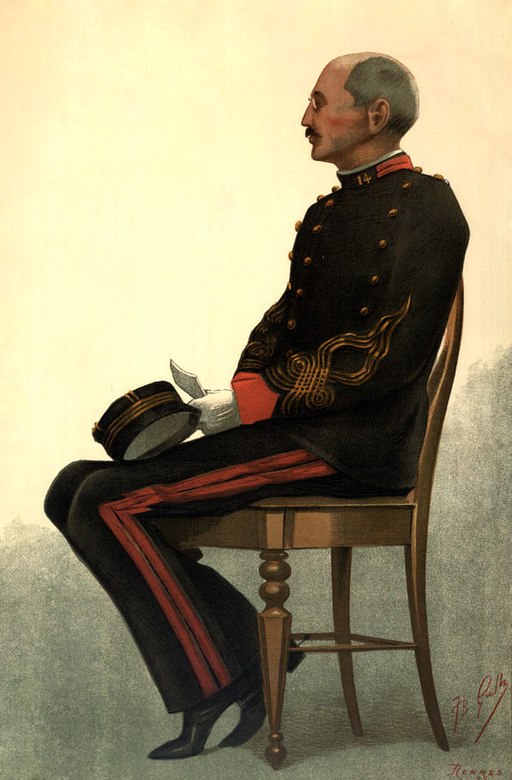 Of course, the personal tragedy of a man wrongly accused and suffering for years to clear his name was what the case was about. However, what this meant for the future of the Jews in Europe was also very important. It was at exactly this time that the Jewish Zionist movement began, in Basle, Switzerland started by Chaim Weizmann and Theodore Herzl. They believed that the Jews could never live happily in Europe unless they gave up their Jewish identity. Even slight assimilation was unacceptable to the Zionists and Herzl and Weizmann suggested the ‘Final Solution’.
Of course, the personal tragedy of a man wrongly accused and suffering for years to clear his name was what the case was about. However, what this meant for the future of the Jews in Europe was also very important. It was at exactly this time that the Jewish Zionist movement began, in Basle, Switzerland started by Chaim Weizmann and Theodore Herzl. They believed that the Jews could never live happily in Europe unless they gave up their Jewish identity. Even slight assimilation was unacceptable to the Zionists and Herzl and Weizmann suggested the ‘Final Solution’.
This was the expression they invented to mean getting all the Jews out of Europe and into Palestine to set up an exclusively Jewish state there. The Zionists felt that a case like the Dreyfus Affair proved that Jews would never really be accepted anywhere in Europe.
Jews and others who were opposed to the racial separatist ideas of the Zionists pointed out that the Dreyfus affair was famous because it was exceptional and not common and, in fairness, there really were no comparable cases anywhere in Western Europe. They also pointed out that, while one half of France had reacted to the case with racist nationalism, the other half (including the intellectual elite) had fought hard and with great integrity to undo the injustice.
And what about Esterhazy, the officer who really betrayed France? The generals did everything they could to clear his name but it became very obvious what he had done and, after being declared innocent by a military trial that was so biased in his favour that it became a laughing stock, Esterhazy quietly went away to England and lived in comfort, probably on the money the Germans had paid him for the secrets.
If you want to watch some videos on this topic, you can click on the links to YouTube videos below.
If you want to answer questions on this article to test how much you understand, you can click on the green box: Finished Reading?
Videos :
1. Anti-Semitism (6:00)
2. The Ghettos (16:00)
3. The Pogroms (6:30)
4. The Dreyfus Affair (4:30)
5. Zionism (3:15)
6. Theodor Herzl (1:11)
7. DrChiam Weizmann (2:01)

 Since Jews first started coming to the continent about fifteen hundred years ago, the relationship with Christian Europe has never been an easy one. The
Since Jews first started coming to the continent about fifteen hundred years ago, the relationship with Christian Europe has never been an easy one. The In the early 1890s, France was aware that its next war would probably be with Germany. Before any shooting started, the war would be one of
In the early 1890s, France was aware that its next war would probably be with Germany. Before any shooting started, the war would be one of  However, it was not that Dreyfus came from half-German Alsace that caused
However, it was not that Dreyfus came from half-German Alsace that caused  The more they looked into Esterhazy’s activities, the more obvious it became that he alone had committed these crimes. However, Esterhazy was aristocratic and Catholic and, anyway, it would be extremely
The more they looked into Esterhazy’s activities, the more obvious it became that he alone had committed these crimes. However, Esterhazy was aristocratic and Catholic and, anyway, it would be extremely  Of course, the personal tragedy of a man wrongly
Of course, the personal tragedy of a man wrongly